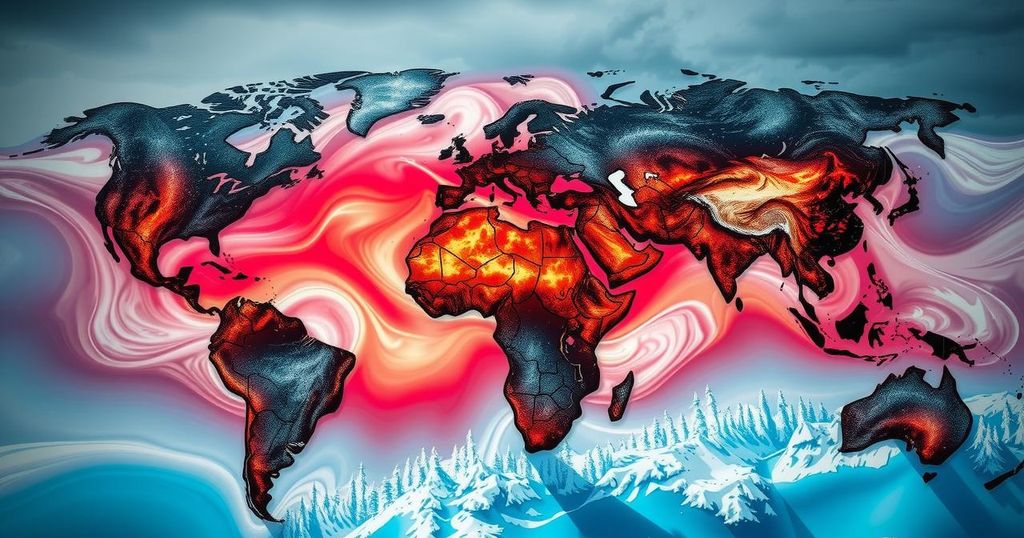2024 is set to be the hottest year on record, culminating a decade of extreme heat attributed to human activities. UN and WMO leaders emphasize the critical need for massive reductions in greenhouse gas emissions and highlight severe climate impacts, including extreme weather events. Collaborative global efforts are essential for effective climate mitigation as WMO marks its 75th anniversary in 2025.
The year 2024 is projected to be the hottest on record, following a decade characterized by extraordinary heat levels largely attributed to human activities, as confirmed by the World Meteorological Organization (WMO). This upward trend in greenhouse gas concentrations is set to exacerbate future warming, leading to pervasive impacts worldwide. UN Secretary-General António Guterres highlighted that this relentless heat fuels what he termed a “climate breakdown” affecting communities globally.
In his message for the New Year, Secretary-General Guterres emphasized the urgent need for nations to significantly reduce emissions in order to avert further environmental degradation. The upcoming publication by WMO in January 2025 will detail the global temperature data for 2024 as part of its comprehensive assessment of the state of the climate. WMO’s Secretary-General Celeste Saulo reiterated the agency’s commitment to addressing climate impacts and fostering cooperative efforts to mitigate these challenges.
Observations of extreme weather patterns throughout 2024—such as unprecedented rainfall, devastating floods, and intense heat—underscore the immediate risks associated with climate change. Saulo pointed out the dire consequences seen globally, including significant loss of life linked to extreme weather events: “Every fraction of a degree of warming matters, and increases climate extremes, impacts, and risks.”
The WMO’s initiatives, including the Early Warnings for All program and the Global Greenhouse Gas Watch initiative, are designed to enhance climate adaptation strategies and support countries in their climate commitments. As part of the 2025 International Year of Glaciers’ Preservation, focus will be drawn to the crucial frozen ecosystems, further stressing the importance of coordinated global efforts in climate resiliency. Throughout 2024, the accelerated impacts of climate change—responsible for numerous weather events that caused the loss of thousands of lives and displaced millions—have been well documented, emphasizing an imperative need for international collaboration to combat extreme climate conditions effectively.
In summary, the implications of climate change are increasingly evident across the globe, necessitating a swift and unified response. The WMO continues to lead the charge toward sustainable solutions, marking a pivotal year for climate action as it prepares for its 75th anniversary in 2025.
The article discusses the alarming trends in global warming and its direct consequences on climate patterns and human populations. With 2024 anticipated to be the warmest year recorded, the narrative is framed through the perspectives of key international leaders from the UN and WMO. These organizations are at the forefront of climate monitoring and providing actionable insights, highlighting the urgent need for collaborative action to mitigate the effects of climate change.
The outlook for climate change in 2024 is dire, marking a pivotal moment in environmental stewardship as global temperatures reach unprecedented highs. With intense weather events and their associated human and economic toll increasingly common, the need for immediate action and international cooperation is clear. The World Meteorological Organization remains a central figure in orchestrating global initiatives. As we approach 2025, it is imperative that concerted efforts aimed at reducing greenhouse gas emissions include comprehensive support for climate adaptation and mitigation strategies.
Original Source: wmo.int






